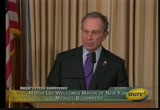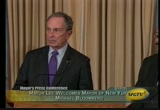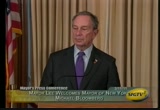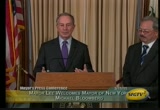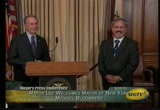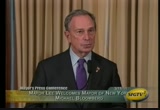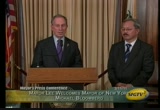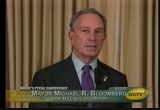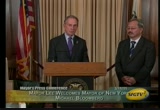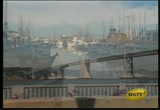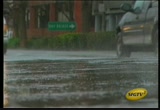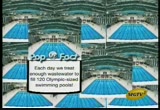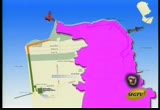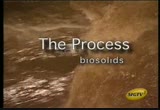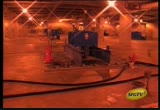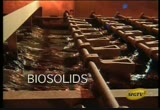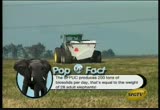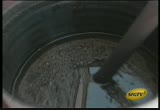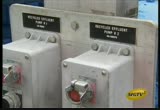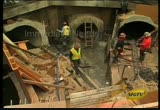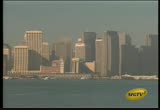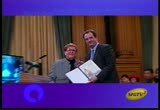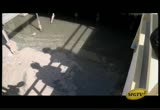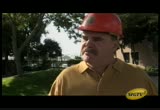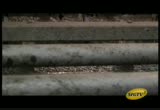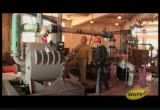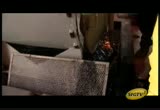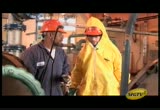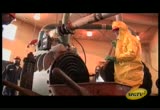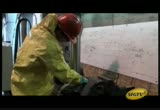tv [untitled] March 23, 2011 8:30am-9:00am PDT
8:30 am
>> i did not know the specifics of how many people here need shelter, but we set a very aggressive goal of reducing the shelter population in new york, which we did not meet because what happened was the economy went south, and that put an awful lot more people in need of shelter. we worked very hard to help reach -- to outreach. we think we have a very small number of people on the streets that sleep on the streets. that is our first concern. we have fixed hours shelter system so that nobody sleeps on a bench. we get everybody to a place and make sure that the kids do get assigned to a school, and we worked very hard on programs to get people out the other end, get them permanent housing. we have a program called advantage, which is funded by the federal government, the state government, and the city government. unfortunately, federal and state are cutting it out, so we will have an enormous challenge, but
8:31 am
it is a program where you have to work to qualify for rent assistance, and if you get a job, which we try to help you do, and keep your job, you can keep the help to provide shelter outside the shelter system, a permanent apartment. i think the people of san francisco and the people of new york understand we have an obligation to help those who are not as lucky as the rest of us. i wish we did not have a problem, but as long as the problem is there, i think the people of san francisco and the people of new york city understand their obligation, and we are going to do everything we can. >> [inaudible] >> i just know -- i took the bar in. it was a fast ride, and walked two blocks with the mayor. it is like new york, i'm sure there are places people go. what we do on the last monday of january -- we send out 500
8:32 am
volunteers dressed as vagrants, and we assign them to different places around the city where you might find homeless, and we send out 2000 volunteers who go all night and tried to count, and we assume we get the same percentage of the actual population as the decoys, and it has been coming down about 13% each year. i have not got the numbers for this year yet. we should be getting them in the next few weeks, but it is a great challenge, and we have about 2500 people living on the streets of new york city, and almost all of them, we interface with. they have emotional problems or psychiatric or addiction problems. there is no simple answers. there are people who just need help, and it is hard to reach out to them. from what i have heard about the mayor, he has a real compassion for people, and that is what you need, someone who is going to do that. >> what advice would you give our new mayor to try to keep his
8:33 am
head above water? [inaudible] >> well, he could come to new york and visit us for the next year. [laughter] i am sure the press would not work him over for that and he would not be in any trouble. i have always thought the public wants elected officials who are genuine. they did not necessarily have to agree with them, and they will complain if they do not agree with them, but they want people who they think are doing things for what the official things are the right reasons, and what they do not like our people that try to have it both ways all the time. you should state what you believe in. "this is who i am." in this case, he was elected by the board of supervisors. they knew what they were getting. you should stick with it. there is an old western saying -- you dance with the woman that from you in. that would be my first piece of
8:34 am
advice. be honest and do your best. not everything is going to work. you have to be innovative. you have to be willing to try new things, even when you know the likelihood of the working is not great and if they do not work, you will be criticized. but the only way cities become great like san francisco has become, is because they had some innovative people who really tried to do things. >> [inaudible] >> change is difficult. there are people who do not like change. one of the great battles, i suppose, in america is between those who drive cars and those who ride bicycles. they both feel very strongly about it, and i think there is a place for balance. we have put a lot of new bicycle lanes in, but most people in new york city either walk or take mass transit. the roads we have do not have
8:35 am
any excess capacity, and we are not going to have more roads. bicycles is one of the answers. people that write them like them. it can be dangerous. in an accident between a car and a bicycle, the bicycle does not have good odds, but our transportation commissioner is very innovative. she does come under a lot of criticism, but when i appointed her, i said i wanted her to try new things. all of the big things, i have approved, i should take the heat, not her. we have done things like closing times square and herald square to traffic, which has been one of the most successful things we have done in terms of getting tourists and helping commerce in the area. we are trying lots of different things. different ways of paying for buses, different kinds of bus routes, and that sort of thing. in the end, mass transit is the solution for every big city, certainly for new york city.
8:36 am
if not mass transit, then you have to take the roads, and roads are not just for automobiles. they are for bicyclist and pedestrians as well. we used to have a number of deaths every year by a traffic accident in herald square and times square, and today, i think there is virtually none. the number of traffic deaths in new york city has gone down to below the lowest when we started keeping records, which was about 1909 or 1910, something along those lines, and keeping people say is one of the transportation commissioners jobs, and she has done a great job. controversial, yes, but if you do not have a commission that is controversial, you do not have a commission that is trying new things. >> [inaudible] >> don't take hours. i do not think he would come. >> [inaudible] >> yes, you have to have
8:37 am
somebody that understands the first job is to make the streets safe so you do not have to look over your shoulder. they have to do it consistent with the constitution of the united states, but i think any city that thinks that they can have a tax base without low crime is making a mistake, and any city that thinks they can have low crime without constant investment in a diverse police force is making a mistake. our police department cost us roughly $8 billion a year, including pensions and other charges to it. we have 35,000 police on the street, 55,000 people that work in the department. and we still have crime. we have the lowest murder rates we have ever had, slightly up last year. maybe we will set a new record for low murder. i hope, but it is aggressive policing, consistent with the law that keeps crime down, and
8:38 am
it is a battle for reducing street crime and for preventing terrorists from inflicting enormous damage. those are the two basic jobs. it is nice when the police can do other things, but nobody should forget what their responsibility is, and the police chief serves at the pleasure of the mayor. they have to do what the mayor's policies are, and when it comes to making the police chief's jobs easier, if we could get guns off the streets of our cities, you would stop killing cops and innocent people, and it is one of the biggest problems facing this country, and washington seems to be unwilling to act to do anything about it. >> [inaudible]
8:52 am
because we have a great waste water system here in san francisco, we do about 80 million gallons of waste water here in san francisco, which means we basically fill up 120 olympic sized swimming pools each and every day here in the city. we protect public health and safety and environment because we are discharging into the bay and into the ocean. this is essentially the first treatment here at our waste water treatment facility. what we do is slow down the water so that things either settle to the bottom or float to the top. you see we have a nice selection of things floating around there, things from bubble gum wrappers, toilet paper, whatever you dump down the toilet, whatever gets into our storm drains, that's what gets into our waste water treatment and we have to clean.
8:53 am
>> see these chains here, this keeps scum from building up. >> on this end in the liquid end basically we're just trying to produce a good water product that doesn't negatively impact the receiving water so that we have recreation and no bad impact on fish and aquatic life. solids is what's happening. . >> by sludge, what exactly do you mean? is that the actual technical term? . >> it's a technical term and it's used in a lot of different ways, but this is organic sewage sludge. basically what it is is, oh, maybe things that come out of your garbage disposal, things that are fecal in nature. it's sludge left in the water
8:54 am
after the primary treatment, then we blend those two over and send them over to digestion. this building is built to replace tanks here that were so odoriferous they would curl your hair. we built this as an interim process. >> is there a coagulant introduced somewhere in the middle of this? . >> this coagulant brings solids together and lets the water run through. that gives us more time in the digestion process, more time to reduce the amount of solids. these are the biggest ones in the world, like we always like to do in san francisco. they are 4 meter, there's none like it in the world. >> really? wow. >> three meters, usually. we got the biggest, if not the best. so here we are. look at that baby hum.
8:55 am
river of sludge. >> one of the things is we use bacteria that's common in our own guts to create this reduction. it's like an extra digestion. one of the things we have to do to facilitate that is heat that sludge up and keep it at the temperature our body likes, 98.6 degrees. >> so what we have here is the heat exchanger for digester no. 6. these clog up with debris and we're coming in to -- next wet weather season so we always come through here, clean them out, make sure that we get maximum heat exchange during the colder wet weather. sludge season. >> rubber glove. >> right here. >> rubber glove, excellent. all right, guys. >> thank you. >> good luck.
8:56 am
>> this is the full on hazmat. . >> residual liquid. we're taking it time to let it drain. we don't want to get sludge on it necessarily. take your time. stand on the side of it. . >> should we let it release for a while? . >> let it release. >> is that the technical term? . >> this is the most important bolt on the whole thing. this is the locking bolt. it locks this thing right in place. so now. >> take your hammer and what we want to do, we get rag build up right in here. the hot water recirculates right in here, the sludge recirculates in here.
8:57 am
the sludge sometimes has rags in it. all we want to do is go around the clean the rags. let me show you how. take the slide hammer, go all the way through the back, go around. >> got you. >> during the real rainy season, how does that change the way dealing with this job? is it a lot more stuff in there? . >> what we do, charles, we do this quarterly. every four months we go around and clean all the heat exchangers so we don't have a large build up. . >> go around? . >> yeah.
8:58 am
(sound of hammering). >> what i'm trying to do, charles, is always pull it out on the low stroke. >> right. so you are not, like, flying out. now talk about clean up. . >> then where does this stuff get deposited? . >> we're going to dump it in a debris box and it will go back to the plant. >> if you think back, the romans came up with a system of plumbing that allowed us it use water to transport waste away from the hub of civilization, which enabled cities to grow. . >> you have a large bowl, a drive motor and another motor with a planetary gearbox with differential pressure inside there. the large mass up there
8:59 am
spinning separating the solids from the liquid. we have to prevent about once a month, we go in there grease those, change the oil, check the vibration levels. the operators can tell just by the hum of that machine that it's a harmonic noise emitted that it's out of balance and the machine needs to be cleaned. it will start vibrating and we have vibration analysis machines that will come over here and check the levels. so it's kind of an on-going thing that you have to stay on top of on a daily basis. >> handled properly, you take organic residuals, as we call them, that are leftovers of our society and turn them back into some energy.
134 Views
IN COLLECTIONS
SFGTV2: San Francisco Government Television Television Archive
Television Archive  Television Archive News Search Service
Television Archive News Search Service 
Uploaded by TV Archive on

 Live Music Archive
Live Music Archive Librivox Free Audio
Librivox Free Audio Metropolitan Museum
Metropolitan Museum Cleveland Museum of Art
Cleveland Museum of Art Internet Arcade
Internet Arcade Console Living Room
Console Living Room Books to Borrow
Books to Borrow Open Library
Open Library TV News
TV News Understanding 9/11
Understanding 9/11